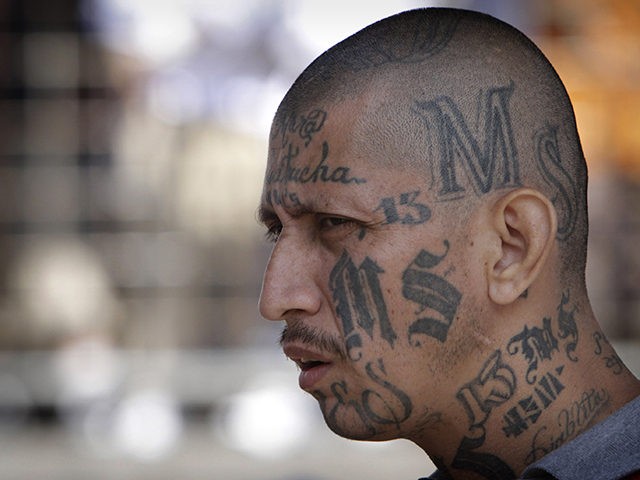Murderous street gangs in El Salvador, home to the notorious transnational criminal organization (TCO) Mara Salvatrucha (MS-13), are reportedly using threats of violence to enforce compliance with the country’s lockdown measures, like social distancing, implemented to stem the spread of the novel coronavirus.
Salvadoran gangs are concerned that high infection rates could damage their bottom line in the long term and attract unwanted interference by government authorities, Argentina’s Spanish-language Clarin newspaper reported on Thursday, echoing news outlets based in the United States and El Salvador.
Gang-related murders in El Salvador have also reportedly dropped dramatically amid President Nayib Bukele’s 30-day national coronavirus quarantine and curfew that went into effect on March 21.
Citing a recent report from the Los Angeles Times and data compiled by the International Crisis Group think-tank, Clarín newspaper reported on Thursday:
For the first time since memory is available, there were 48 hours without murder in the country. And crimes fell from 114 in February to 65 in March. What drives the decline is not a gang truce or a new police strategy, but a national quarantine of weeks to curb the spread of the coronavirus.
Street gangs that have long terrorized El Salvador have now turned their attention from extortion and murder to a more pressing issue: imposing restrictions on social distancing, often through threats and violence.
MS-13’s primary rival, the 18th Street Gang, also known as Barrio 18, is reportedly allowing some small business owners and taxi drivers to defer making extortion fee payments, known as “rent,” for until the end of the quarantine.
Across El Salvador, MS-13 and Barrio 18 have become the de facto authority of many neighborhoods, superseding the government authorities as they exert enormous control over the daily lives of citizens living in their respective territories.
The Clarín newspaper noted:
In many parts of the country, gangs are more effective than government authorities, with tactics including circulating recordings through messaging apps to threaten people who violate the rules. “We don’t want to see anyone on the street,” says one recording. “If you go out, you better just go to the store, and wear a face mask.”
The gangs also produced videos showing how their masked members beat up those who do not adhere to quarantine.
Clarín described the gang members enforcing the national coronavirus quarantine measures as “public health thugs.”
El Salvador is one of the most violent places on earth, where fatalities once exceeded those that occurred in some military war zones across the globe. Street gangs and other powerful criminal groups that operate in El Salvador are behind the majority of the country’s killings.
At the time that Bukele announced the national quarantine last month, El Salvador, a small Central American country of about 6.5 million, had not yet recorded any coronavirus cases.
As of Friday afternoon, however, the Salvadoran Health Ministry had reported 117 coronavirus cases and six deaths.
Last month, as the deadly and highly contagious Chinese coronavirus illness — dubbed “COVID-19” by the World Health Organization to aid the Chinese Communist Party in disguising the origin of the disease — began to plague Central America, El Salvador became the first country in the Americas to ban all foreign entry in a bid to stem the spread of the virus, which originated in China’s Wuhan region.
The tentacles of Salvadoran street gangs like MS-13 reach deep into the United States. Both MS-13 and Barrio 18 originated in Los Angeles.
In Brazil, the largest and hardest-hit country in Latin America, street gangs are also enforcing lockdown orders to hinder the spread of coronavirus. Unlike Bukele, Brazilian President Jair Bolsonaro has largely dismissed quarantine measures, appearing in public to encourage locals to patronize hard-hit small businesses and assuring Brazilians that they will all die someday anyway.

COMMENTS
Please let us know if you're having issues with commenting.